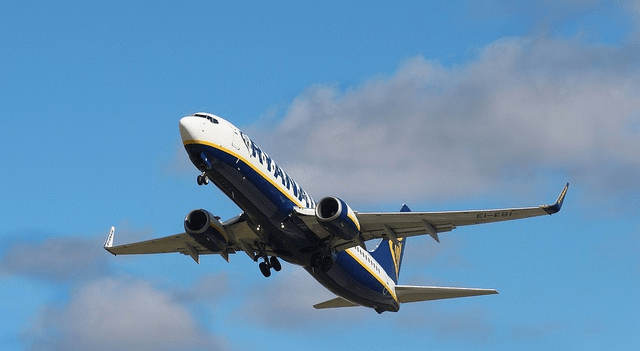American Airlines (NASDAQ:AAL) Reports Quarterly Loss Due to Aviation Fuel and New Labor Contracts.
The company’s net loss in the third quarter ended on September 30 was $545 million, or 83 cents per share, compared to a profit of $483 million, or 69 cents per share, a year earlier.
US airline investors fear travel boom could be just around the corner
This should be the best of times for U.S. airlines, with a travel boom still going strong, but investors are worried that demand could wane as the economy falters, making it harder to protect profits from the surge. of costs.
Those concerns are weighing on airline stocks, even as earnings reports point to a continued consumer appetite for travel. Shares of United Airlines fell about 10% on Wednesday, dragging down the broader NYSE Arca Airline index, after the Chicago-based airline forecast lower-than-expected fourth-quarter profit due to rising expenses.
“It’s really a demand-driven business,” said Brian Mulberry, client portfolio manager at Zacks Investment Management. “If there is less demand, obviously less sales means less profitability.”
The struggle to gain control of operating costs has also called into question rival Delta Air Lines’ goal of generating profits of more than $7 a share next year, with some analysts now calling the target aspirational. This is why the airline’s shares have fallen 10% this month, even after it posted stronger-than-expected quarterly profits.
So far, strong demand from travelers has allowed carriers to mitigate inflationary pressure with higher fares. While United and Delta have said travel demand is holding up, double-digit drops in year-over-year airfares suggest airlines’ pricing power has peaked.
Falling ticket prices are raising questions about how airlines will protect themselves against cost increases. Delta CEO Ed Bastian suggested last week that the industry would be able to pass on increased operating costs to consumers.
But that’s easier said than done, as analysts say the depletion of pandemic savings, as well as high interest rates, have reduced consumers’ tolerance for high fees.
Airlines will likely see “a more dramatic negative effect” than in the past if there is any drop in demand, because the cost of doing business has risen materially, Mulberry said.
While airlines have acknowledged higher costs, including rising fuel prices, they say passenger revenues point to a healthy trend in demand.
“Travel continues to be a purchasing priority and our core customer base is in a healthy financial position,” Delta CEO Ed Bastian said last week.
United, which doesn’t forecast a profit for 2024, said Tuesday that demand for travel remains “strong and stable.”
Fuel and salary expenses accounted for about 50% and 57% of operating costs in the third quarter at Delta and United, respectively. New employment contracts, as well as higher fuel prices, mean that cost pressures will not go away.
Rising fuel prices are estimated to inflate Delta’s costs by $400 million in the second half of the year. The airline lowered its 2023 earnings outlook to a range of $6.00 to $6.25 per share, from the $6 to $7 per share estimate in July.
Similarly, United forecasts that its average fuel bill will increase 11% in the December quarter from the previous quarter.
United said it also faces headwinds in the Israel-Hamas war.
New Chief Financial Officer Michael Leskinen told investors on Wednesday that the company’s fourth-quarter non-fuel operating costs would rise by about 1.5 percentage points if its flights to Tel Aviv remain grounded for the year.
Delays in aircraft and jet engine deliveries have also forced carriers to fly older planes that are less fuel efficient and to spend more on aircraft maintenance.
Delta expects non-fuel costs to remain 2% higher year over year in the current fourth quarter – a change from July, when it forecast low single-digit declines in the second half of the year.
American Airlines and Alaska Air, which will report earnings on Thursday, cut their profit estimates for the third quarter due to rising fuel costs.
Melius Research analyst Conor Cunningham said the failure of airlines to meet their cost target has been “tough to stomach”.
